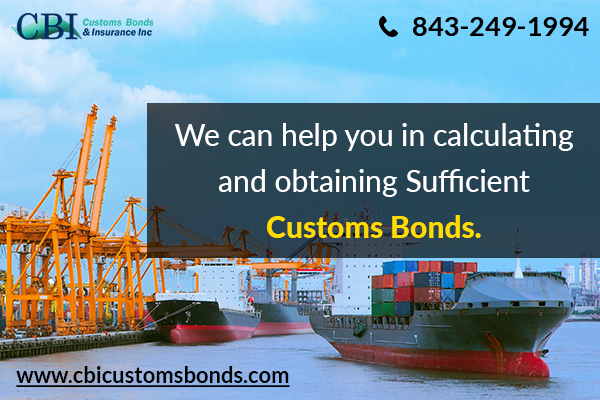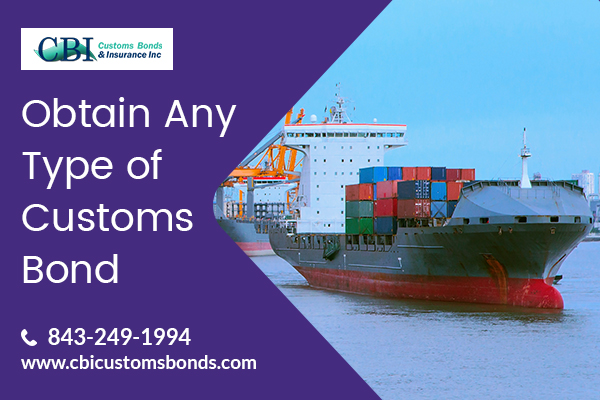Calculating the Size of a Customs Bond
If you have never made a large overseas shipment before, you
might easily underestimate its process. But this experience can be overwhelming
especially if it’s your first time. The amount of paperwork and documentation
involved in the customs clearance procedure is enough to stress you. For many
experienced importers and exporters, it can be a familiar and smooth experience
as they have done it several times before. But for first-timers, an attempt to
filing out customs documents on their own and submitting them to respective
department and customs agents can be risky, stressful, and time-consuming.
A customs surety bond
is one of the important documents in this process. It is required by the U.S.
Customs and Border Protection (CBP) to import goods into the US. If you don’t
have a customs bond while importing
in the US, it is against the rules and regulation and you may have to reimburse
heavy penalty for that. Your shipment might get delayed at customs for several
days or weeks in absence of properly signed and approved documents.
The best way to avoid any tragedy like this, many
international shippers take help of customs brokers or freight forwarding
companies. The brokers are licensed professionals who work for individual
importers as well as for freight forwarding companies to clear the goods
through customs.
They complete a range of jobs on behalf of the owner of
merchandise like obtaining sufficient customs surety bond, filling the
forms, classifying the merchandise, and many other tasks.
There are two common types of bonds – Continuous Customs Bond and Single Entry Bond. A single entry bond
is never less than the total value of goods. This means the value of goods plus
duties, taxes, and fees. A continuous
customs bond is quite different. The size of a continuous bond is 10% of
duties, taxes, and fees paid by the importer for the 12-month period. The
minimum continuous customs bond amount is $50,000.
An insufficient bond may lead to longer delays in
importations and sometimes customs denies releasing the goods. Once your customs bond gets terminated it can
return to sufficient status after 15 days of the request. The importers need to
inform the broker or surety company about the insufficient bond and they will
guide them about further process.
Calculating the adequate bond size is essential to avoid
heavy penalty costs. Make sure your broker is licensed and have the knowledge
to rightly fill the information about the freight to obtain an appropriate
bond. They offer valuable guidance about obtaining correct customs bond and
stay connected with the importer until his or her shipment is completed safely.




Comments
Post a Comment